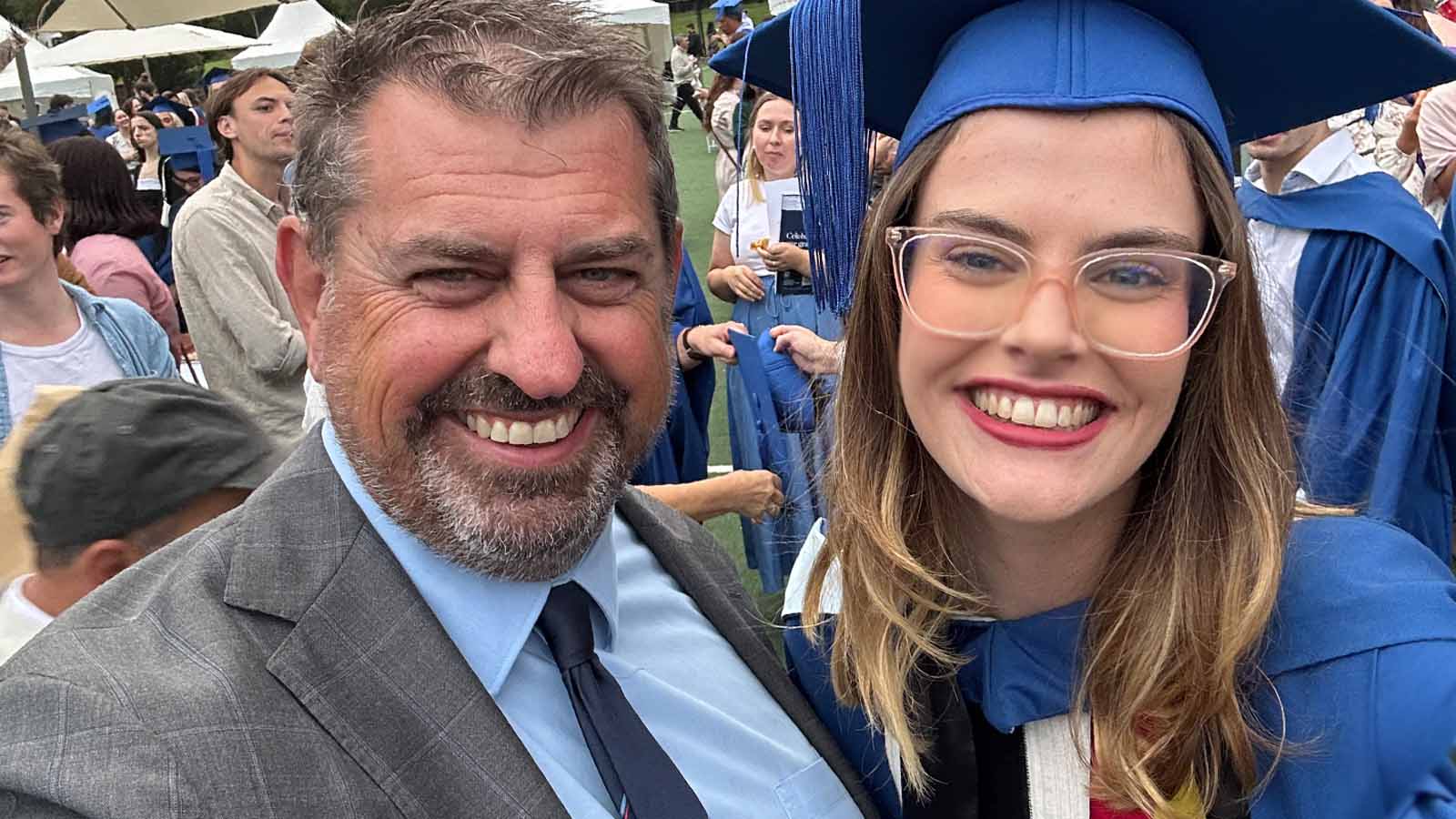Proud times two: Dr Scott Avery on Aboriginality, deafness and advocacy
A chat with the Ambassador for International Day of People with Disability
December 3, 2024
As a university student in the 1980s and 90s, Scott Avery says being deaf is something he dealt with privately. Now he is using his platform to put equity at the forefront.
“I remember I wore these giant hearing aids, they almost looked like boom boxes strapped to my ears,” Scott laughs, reminiscing on his early days as a commerce student at the University of ÌìÃÀ´«Ã½app (ÌìÃÀ´«Ã½app).
He originally had plans to become a history teacher, but made a last minute change to enrol at ÌìÃÀ´«Ã½app to do a commerce degree, and before long had completed his honours in economics, a graduate diploma in law, two master’s degrees and a PhD.
He has since dedicated his life to bridging the gaps of inclusion for First Nations peoples and people with disability. He’s a nationally renowned advocate, with his research informing government policy like the Disability Royal Commission, Australia’s Disability Strategy and Closing the Gap. His latest honours: being named 2023 Ambassador for International Day of People with Disability, and giving the 2024 Disability Leadership Oration in Canberra.
“I touched on my deaf experience, and how when I was at university, being deaf is something I was dealing with very privately and navigating my way through. While technology has changed and moved [to be more accommodating] there still needs to be more understanding around of how something like hearing can affect your engagement in learning or education,” he says.

Traditional knowledge meets lived experience
Alongside decades of research and lived experience, Scott has thousands of years of traditional knowledge helping him navigate life with a disability.
“I have this phrase where I say: ‘I’m deaf, I’m Aboriginal, I’m proud times two’,” Scott says.
Descendant from the Worimi people of New South Wales, and with an affiliation to the First Nations disability community, he credits teachings from Elders with helping understand and accept his deafness. This intersection inspired Scott to write Culture is Inclusion, a book of stories told by Aboriginal and Torres Strait Islander people with disability about traditional societies of inclusion, which was based on his PhD research.
One story that stands out to Scott is the One-Legged Mungo Man in Western NSW – a track of single right footprints portraying a one-legged hunter.
“When we tell this story in Indigenous culture, it’s showing that communities don’t see disability in the same way that non-Indigenous communities do,” he says.
“Being deaf is not something that is no longer a stigma for me, it is my natural world. I feel like I am meant to be deaf for a reason; it’s not something that needs to be fixed or cured. That's a message I got from my Aboriginal Elders, a very powerful and liberating message to be able to share and speak about broadly as an ambassador.”
Changing the world for the better
While Scott’s work focuses on systemic change for First Nations and disability inclusion, he recognises the importance of everyday behaviours that can help create better environments for all, like simply the inclusion of Aboriginal art within institutions.
“I might go into a university and see Aboriginal art around and an Acknowledgement of Country and those things can help you feel like you belong. Disability is a similar experience. If people with disability can see people around them and then there's a community around them, then they'll feel like they belong,” he says.
“It’s so powerful for you to tell someone [with disability] that they are welcome here. Have conversations and ask people in a non-stigmatising way if things are working for them, and they will feel comfortable to speak up and tell you things.”
Similarly, Scott advises anyone with disability to embrace their differences and be honest and open about their needs.
“I’ve made a conscious choice to talk about the impact of not hearing, communicating and not feeling stigmatised about that,” he says.
“I just say to young people that you are who you are for a reason and that’s something my Indigenous Elders told me. Your story is unique and the fact that you've done that and probably come up against barriers that other people may not know about gives you a special form of knowledge that others won't have. Just keep going – you don't need to fight your battles on your own.”